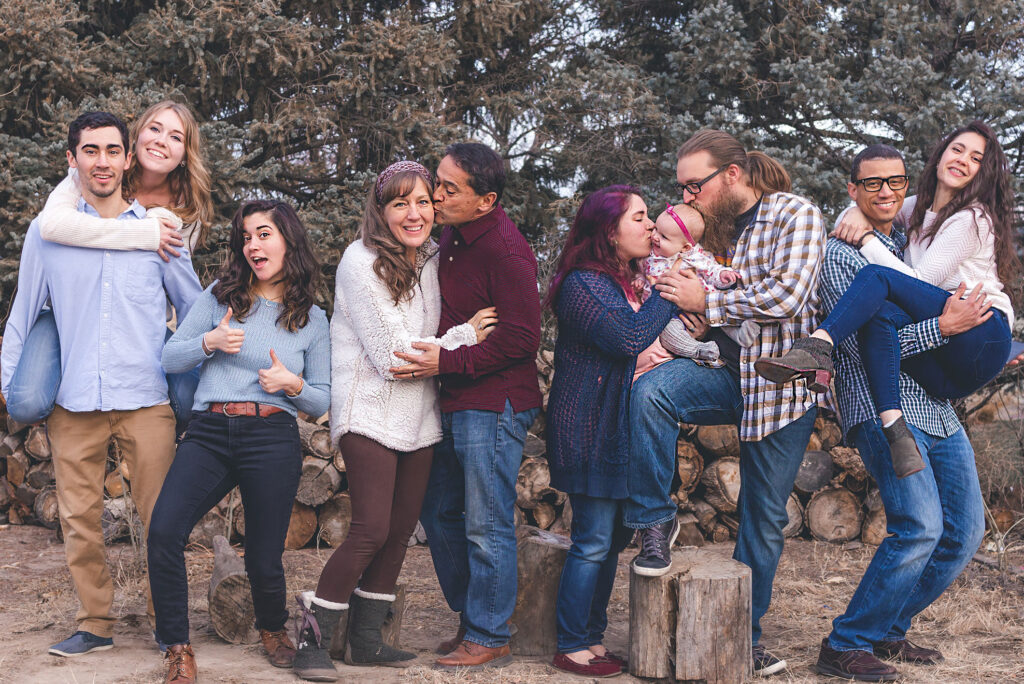The family environment can be compared to a complex organism, where every part affects every other part.
Each person in the family also has many parts that affect all the other parts. Each person has their own set of personality traits, emotions, thoughts, beliefs, interests, and pet peeves (things we dislike).
In addition, each person is part of this complex family system, but also part of several other systems. For example, each family member is part of a friend group, school, work, church, or other groups. These groups affect the family members’ personality, emotions, thoughts, beliefs, interests, and pet peeves.
All of these moving parts within each person are brought back into the family unit, where everyone in the family must adjust to the constantly changing experiences of everyone else.
In order for the family environment to remain safe and healthy for everyone, we must think of the family as a safety zone where certain things remain stable. Perhaps you can count on dinner at about the same time every night, or that certain family members can be expected to be home at certain times of the day. But most importantly, the family should be the place where we are accepted, validated, and celebrated.
Accepted
Acceptance can be summed up by saying, “I see you. I welcome you. I approve of you all the time. At times I may not like something you do, but I always love you.” We must all strive to ensure that our words and attitudes show acceptance at all times. By doing so, our family members can safely explore areas where they might need to grow or change.
Validated
It is so important to the social and emotional health of every human being to be validated. The family environment is the best place for this to happen. So how do we validate those we love? The first and most difficult thing we must do is learn not to be defensive when someone voices their complaints. We must recognize and accept that our family member has thoughts and feelings that are true for them, even when it sounds illogical to you.
When we can listen without judging, listen without criticism; listen without ridiculing, listen without defending or abandoning, we begin to remove the negative charge of the situation. Validation just means you hear and understand. You can validate your child’s wish to not go to school, or your partner’s wish to open a new credit card, while disagreeing with the actions that would follow. Before you express your views, make sure you validate. I hear you. I understand. It makes sense.
If you really want your family member to listen to you, first go overboard with validation.
Celebrated
The family environment that is socially and emotionally healthy is an environment where everyone feels celebrated. How do you celebrate your loved ones? You can start by listening. If you are unable to listen, don’t fake it. Honestly tell your loved one that your attention is divided at the moment, and set a time the same day, or at the very latest, the following day, to listen. Of course, if we are talking about a very young child, you may need to adjust this to a very short time frame, even if you have to limit the amount of time you have to give them your undivided attention.
Other ways to celebrate your family members is by learning their Love Languages. The Five Love Languages by Dr. Gary Chapman explains how you can make sure everyone in your family has a full “love bucket.” According to this book, everyone has a primary and secondary love language. The love languages include:
- Words of Affirmation
- Quality Time
- Receiving Gifts
- Acts of Service
- Physical touch
We all must learn to speak the love language of our family members. If you give words of affirmation to someone whose love language is quality time, they are going to feel slighted even though you meant well. Also, don’t fear the one whose love language is receiving gifts. It doesn’t have to be a costly item to fill their love bucket. You can write a note, buy them a piece of chocolate, or give them the best cut of meat at dinner. The Love Languages website has quizzes for different age groups in your family so you can learn how to speak the love language of everyone in your family. It also gives you lots of ideas for how to fill all your family members’ love buckets. A person with a full love bucket feels celebrated and has a lot of love to give back.



